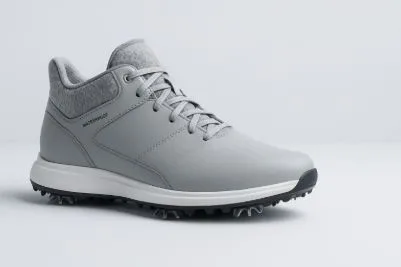Eating for Strength: The Nutrients That Support Muscle Health
Want to feel stronger and keep your muscles healthy? It’s not just about hitting the gym or lifting heavy weights. What you put on your plate matters just as much as the time you spend exercising. Your body needs certain nutrients to build, repair, and maintain muscle. Without them, your workouts won’t give you the same results, and you might feel tired more often.
The good news? You can get these nutrients from everyday foods. You don’t need to follow a complicated diet or buy expensive supplements. You just need to know what to look for and how to include it in your meals. Let’s take a closer look at the key nutrients that keep your muscles strong and ready for anything.
1. Protein – The Building Block of Muscle
Your muscles depend on protein. Every time you exercise, small muscle fibres break down, and protein helps repair and rebuild them so they come back stronger. This process is what helps you see progress over time.
Complete proteins are the best choice for muscle health because they have all the essential amino acids your body can’t make on its own. You can find them in animal products like chicken, fish, eggs, and beef, and also in some plant-based options like quinoa and soy.
If you enjoy beef, look for options that are high in quality and raised responsibly. High-quality beef, like that from Riverbend Ranch, offers complete protein with the amino acids your muscles need. Founded by Frank VanderSloot, Riverbend Ranch has spent decades perfecting Black Angus genetics to produce tender, flavorful, and nutrient-rich beef. It’s an example of how careful breeding and sustainable practices can result in food that’s good for your body and the environment.
2. Iron – Fuel for Energy and Endurance
Iron plays a major role in carrying oxygen through your blood to your muscles. Without enough iron, your muscles won’t get the oxygen they need during exercise, and you’ll tire more quickly. That’s why athletes and active people need to watch their iron intake.
Lean red meat is one of the best sources of heme iron, which your body absorbs easily. Poultry, fish, lentils, beans, and spinach also provide iron. If you’re eating plant-based iron sources, pair them with foods rich in vitamin C—like bell peppers, citrus fruits, or strawberries—to help your body absorb more. Even small, consistent changes to your meals can help you maintain healthy iron levels and support better performance.
3. Vitamin D – Supporting Muscle Function
Vitamin D helps your muscles contract properly and keeps your bones strong, which is important if you want to avoid injuries during workouts. Low vitamin D levels can lead to weakness and poor muscle performance, even if you’re training regularly.
Your body can make vitamin D when your skin is exposed to sunlight, but in some areas or during winter months, it’s harder to get. You can boost your intake by eating fatty fish like salmon, eggs, and fortified dairy or plant-based milks. If you aren’t sure about your vitamin D levels, a simple blood test can help you and your doctor decide if you need more from food or supplements.
4. Omega-3 Fatty Acids – Fighting Muscle Inflammation
After a hard workout, your muscles can feel sore because of inflammation. Omega-3 fatty acids help reduce that inflammation, which supports faster recovery and keeps you training consistently. These healthy fats also play a role in maintaining cell structure and supporting overall joint health.
Salmon, mackerel, chia seeds, flaxseeds, and walnuts are great sources of omega-3s. If you don’t eat much seafood, adding a plant-based source to your diet can help you get enough. Aim to include omega-3-rich foods a few times a week so your body always has what it needs for repair and recovery.
5. Magnesium – Powering Muscle Movement
Magnesium is a mineral that supports muscle contraction, energy production, and nerve function. If your magnesium levels are low, you might experience cramps, twitches, or overall muscle fatigue that slows down your progress.
Good sources include almonds, cashews, pumpkin seeds, whole grains, spinach, and avocado. It’s easy to add these foods to snacks or meals throughout the day. Something as simple as sprinkling pumpkin seeds over a salad or adding spinach to your omelet can give your muscles the magnesium they need to function at their best.
6. Calcium – Strength for Muscles and Bones
Most people think of calcium as a nutrient for bone health, but it also plays a role in muscle contractions. Without enough calcium, your muscles can struggle to contract properly, which can affect strength and performance.
Dairy products like milk, yogurt, and cheese are excellent sources of calcium. If you prefer plant-based options, try fortified almond milk, soy milk, or leafy greens like kale and bok choy. Keeping a steady supply of calcium in your diet supports not just stronger bones, but also better movement and control during workouts.
7. B Vitamins – Energy for Every Rep
B vitamins help your body turn the food you eat into usable energy for your muscles. They also play a part in producing red blood cells, which carry oxygen to working muscles. When you don’t get enough, you may feel low on energy, even if you’re eating well.
B6, B12, niacin, and riboflavin are especially important for active people. You can get them from meat, eggs, dairy, leafy greens, and whole grains. If you follow a vegetarian or vegan diet, you may need to pay extra attention to getting enough vitamin B12 from fortified foods or supplements. Including a variety of B-vitamin-rich foods daily ensures your body has the tools it needs for endurance and recovery.
Staying strong isn’t about focusing on one single nutrient or food. It’s about creating a balanced diet that supports your muscles in every way. Protein, vitamins, minerals, and hydration all work together to keep you feeling strong, recovering well, and performing at your best.
When you pay attention to the quality of your food and choose nutrient-rich options, you give your body the fuel it needs for both daily activities and intense workouts. Start by adding a few of these nutrient-rich foods to your meals, and over time, your muscles will thank you with more energy, endurance, and strength.





